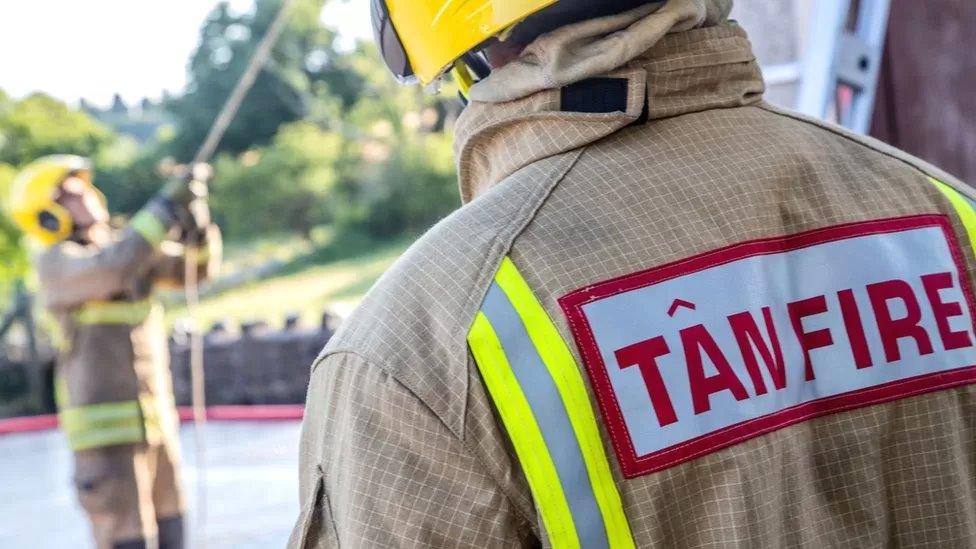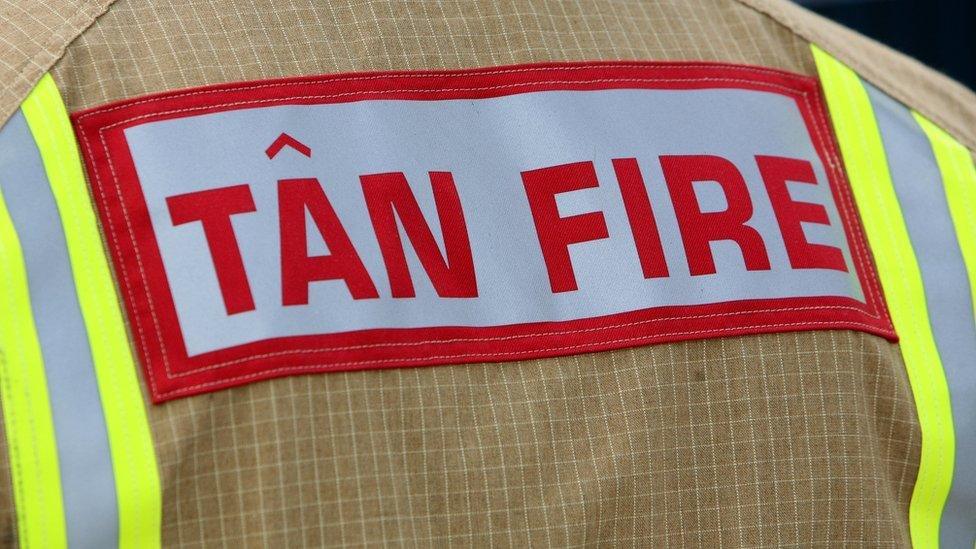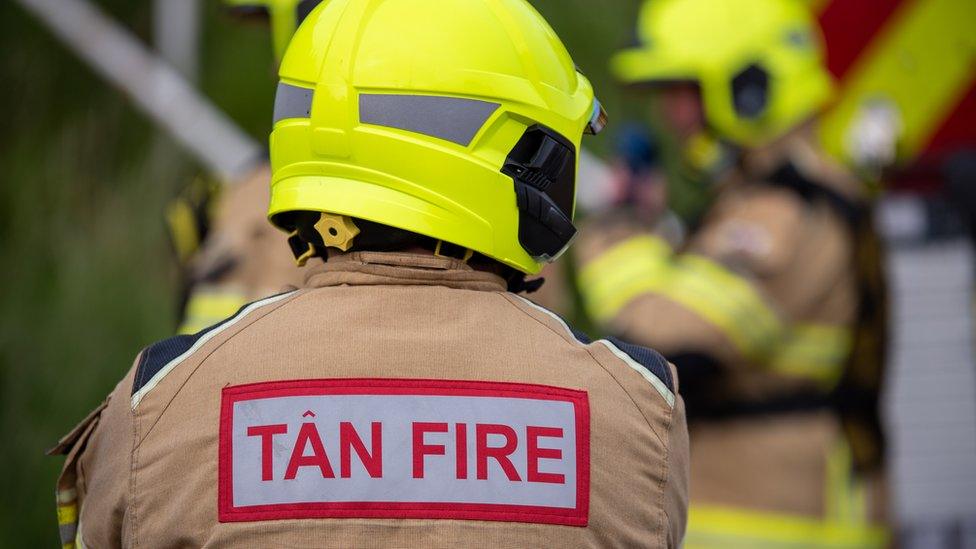North Wales Fire Service budget: Rise in fire 'tax' possible
- Published

Firefighters called off strike action in north Wales after a pay deal was reached
People in north Wales could face paying more for the fire service in future in order to plug a budget hole.
North Wales Fire and Rescue Service needs to find £2.4m in savings, a report to its executive body said.
Firefighters at the service called off strike action after agreeing a back-dated 7% pay rise for last year and a 5% rise from this year on.
However with no extra funds from government to pay for this, the money will come from the service's reserves.
Chief fire officer Dawn Docx told the executive panel the settlement was welcome to avoid strike action and giver firefighters "a much-needed pay rise".
However it is adding pressure to the budget. The service already needed to make £1.4m in savings, and the higher than expected pay settlement has added an extra £1m.
A 9.9% rise in the precept - an amount added to council tax to pay for services like fire and policing - had already been already agreed in the January budget for the coming 2023-24 year.
'Nothing else from leftfield'
But a further levy could follow if the situation worsens.
The fire service is taking the money for the pay rise from its reserves, the Local Democracry Reporting Service said.
Assistant chief fire officer Helen McArthur told the meeting: "It is worth noting that the use of reserves is not sustainable and coupled with those additional pressures we now have an underlying deficit of £2.4m.
"This will have unavoidable implications for future service delivery options and also the levy for 2024-25 onwards."
Treasurer Dafydd Edwards described the financial situation as "nip and tuck" to avoid charging an additional levy in the middle of the coming financial year.
"We do have sufficient reserves for us to manage going forward without an additional levy this year as long as nothing else from leftfield comes our way," he said.
"We can cope this year by using reserves and having used reserves in the current financial year and in the next year they will become rather scarce by the end of the year, and you can only use reserves once."
Related topics
- Published15 February 2023

- Published14 February 2023
